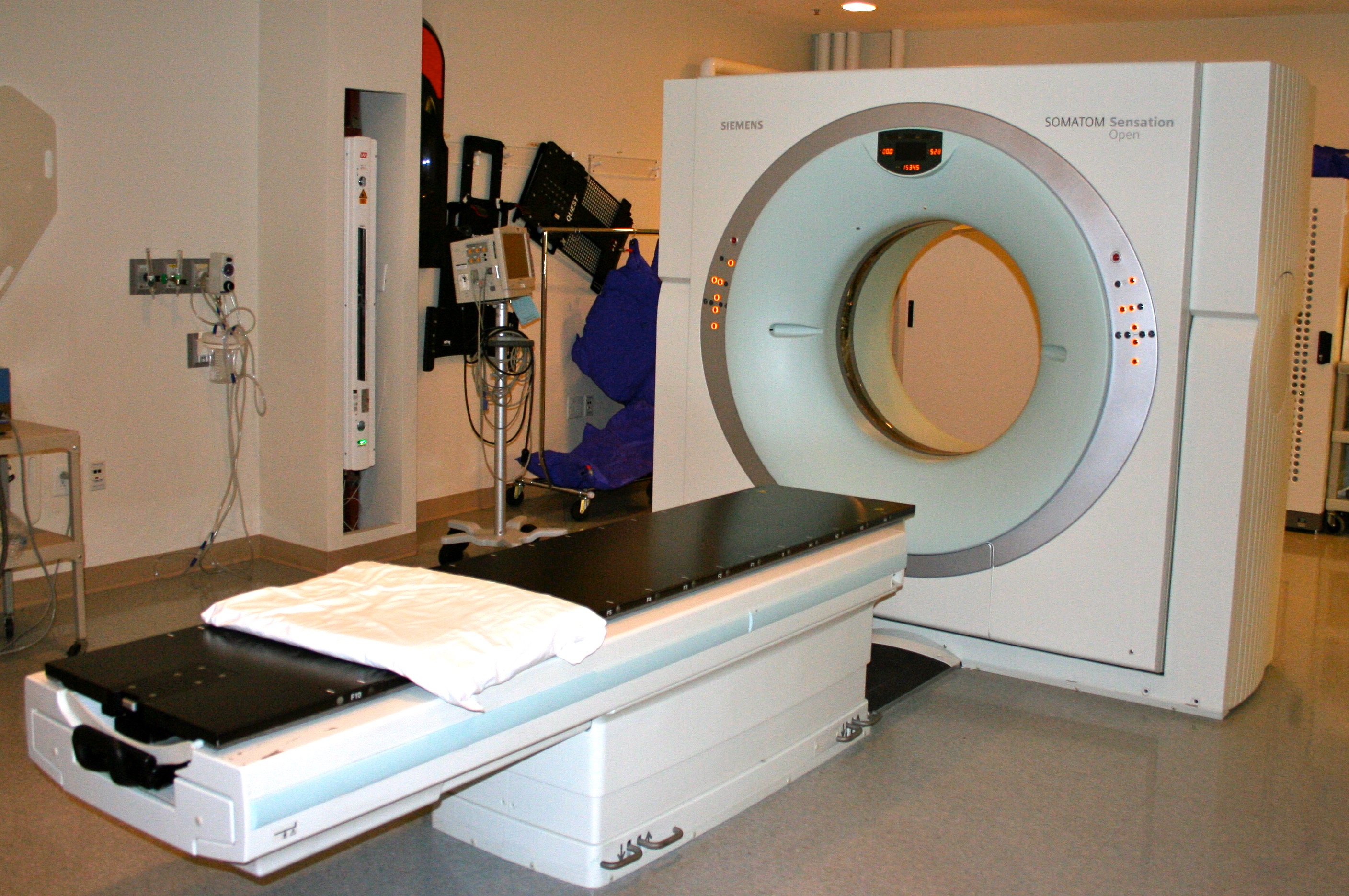CT Scan (Computed Tomography)
Table of Contents
CT scans (CAT scans) are medical tests that take pictures of the inside of your body using x-ray technology. The pictures create cross-sectional images, or slices, of your body. The pictures are combined to create a three-dimensional (3-D) picture.
Why are CT scans used?
CT scans show your internal organs, soft tissues, blood vessels, and bones. CT scans have many uses but in cancer care, they are used to:
- Find cancer.
- Learn more about the cancer (where it is and how big it is).
- Find where to do a biopsy.
- Plan your cancer treatment.
- Check during treatment to see if your tumor has changed.
- See if the treatment worked once the treatment is done.
- Check for new cancer during follow-up care.
How do I prepare for a CT scan?
Preparing for a CT scan depends on the part of the body being scanned. Your provider will tell you what you need to do.
- You may need to arrive an hour or two before your scan to do paperwork, meet with providers, or finish any preparation needed for the scan.
- You may be asked to not eat or drink for many hours before your scan. This is common if you will be getting intravenous (IV, in a vein) contrast. IV contrast can cause a reaction or upset stomach.
- You may need to do an enema, depending on which part of the body is being looked at.
- You should wear comfortable clothing and shoes that are easy to get on and off. You will be asked to take things off, such as a wig, dentures, bra, glasses, jewelry, watch, etc.
Why would I need contrast during my CT scan?
If your provider wants you to have contrast for your scan, you may be asked to have a blood test. Your provider will check how your kidneys are working. IV contrast can affect how your kidneys work. The blood test is often done 1-2 weeks before your CT scan.
If the CT scan will look at your stomach or bowel, you may be given oral contrast (contrast that you drink). This is done to see the difference between your bowels and other structures.
If you are getting IV contrast, it will be given either before or during the test. It does not hurt, but some patients do feel warm or flushed after it is given, which is normal.
If you have ever had an allergic reaction to contrast, tell your provider before the exam. You may be given steroids and Benadryl to prevent a reaction.
How is a CT scan done?
A CT scan is done while you lie on a flat table. This table moves in and out of the donut-shaped CT scanner. The scanner will move around you taking X-rays from many angles. These X-rays will be put together using computer software to create 3-D images.
You must lie still during the test. You may be asked to hold your breath for short periods of time. The test will take between 15-60 minutes. You will be by yourself in the room, but a technician will be able to see, hear, and talk to you. The test is not painful, but some people find it hard to lie flat and still. The technician will help you get comfortable.
If you are having the CT scan for radiation therapy planning, the technician will put you in the position you will be in every day for your treatments. They may make special devices like masks or vac-loc bags to help keep you still and to keep you in the same position.
How do I get the results of my CT scan?
A radiologist, a doctor who looks at different types of images, looks at the scan and creates a report. The report gives information about normal and abnormal findings. Your provider will talk with you about your results.
If your CT scan is for planning only, your radiation oncologist will use the 3-D images to make your radiation treatment plan.
